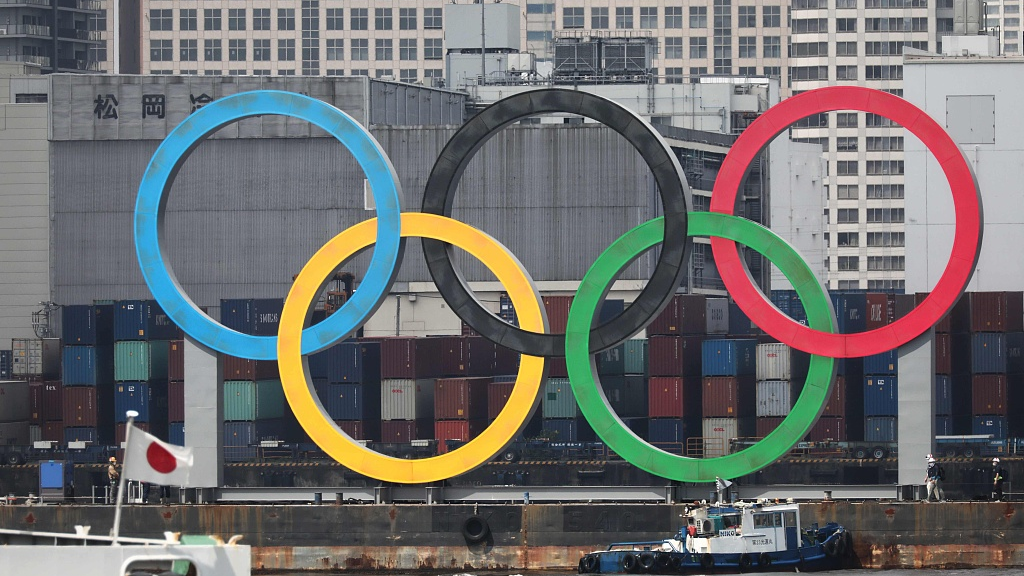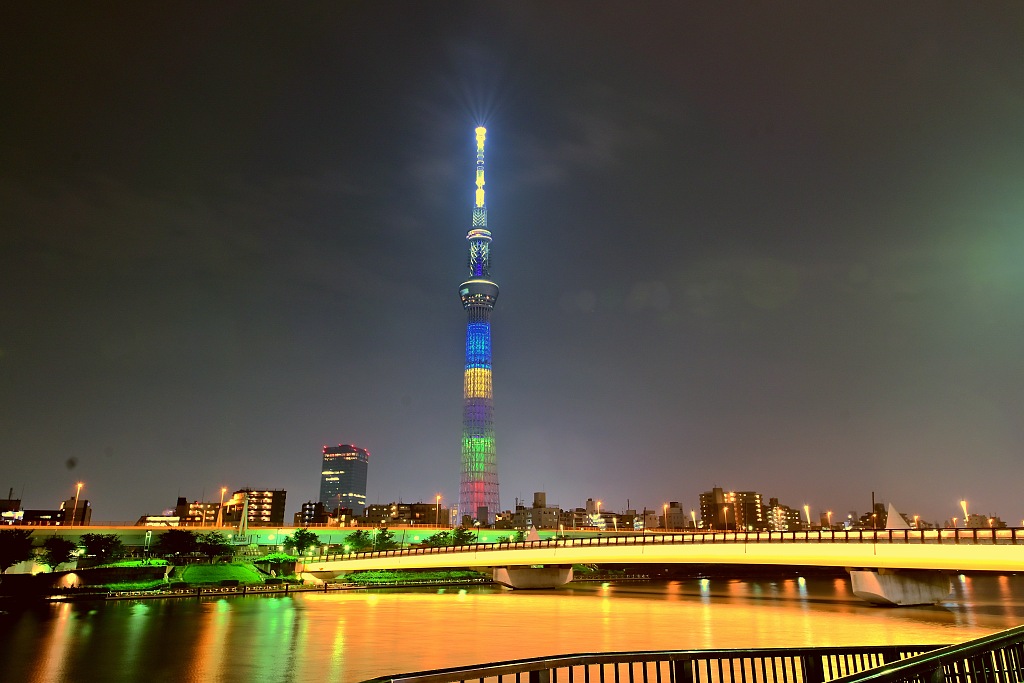
Olympic rings symbol at Tokyo Waterfront in the waters of Odaiba Marine Park in Tokyo, Japan, August 6, 2020. /VCG
Olympic rings symbol at Tokyo Waterfront in the waters of Odaiba Marine Park in Tokyo, Japan, August 6, 2020. /VCG
More than half of Japanese companies believe the Tokyo Olympics, originally planned for this summer but postponed for a year due to the novel coronavirus, should be canceled or put off again, a survey by a Japanese think-tank found.
"With the end of the spread of infection nowhere in sight, companies are divided into for and against holding the event in 2021," the research group said in a report published on Thursday.
Of some 13,000 companies that responded to the poll by Tokyo Shoko Research over the Internet between late July and early August, 27.8 percent said the sporting event should be canceled while 25.8 percent saw another postponement as desirable.

Tokyo landmark the Sky Tree light up in Olympics Rings colors, marking one-year countdown anniversary to Tokyo Olympics, July 24, 2020. /VCG
Tokyo landmark the Sky Tree light up in Olympics Rings colors, marking one-year countdown anniversary to Tokyo Olympics, July 24, 2020. /VCG
Of the companies surveyed, 22.5 percent believed the Tokyo Olympics should be held as planned while 18.4 percent said they ought to be held with fewer spectators, and 5.3 percent said they should be held with no spectators.
In late May, Japan lifted a state of emergency imposed to stop the coronavirus, as it recorded fewer infections, but cases started to increase again in July.
Japanese organizers and the International Olympic Committee have said if the Olympics can't be held next year, they will be canceled.
Japan is heavily invested in the Olympics and is spending officially 12.6 billion U.S. dollars, though a government audit says the number is twice that large.
The Japanese economy has also been hit hard by the pandemic. The government reported this week that exports plunged 19.2 percent in July from a year earlier.
(With input from agencies)